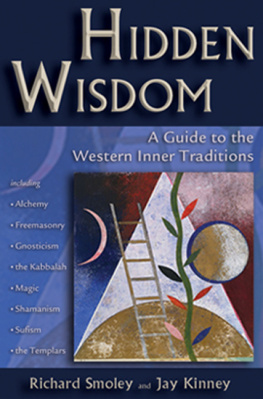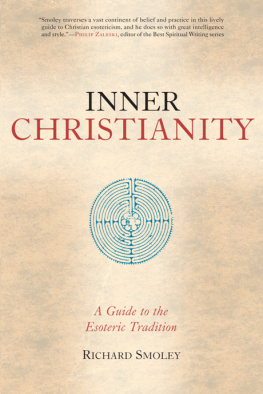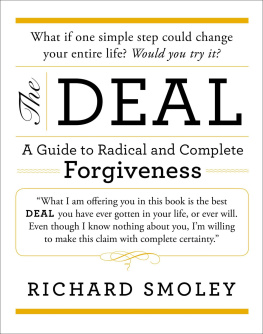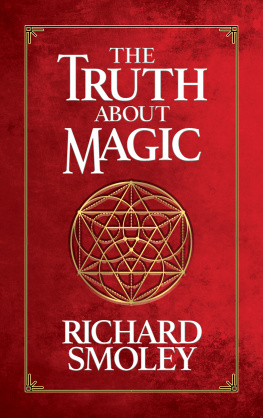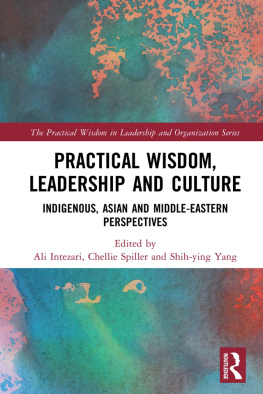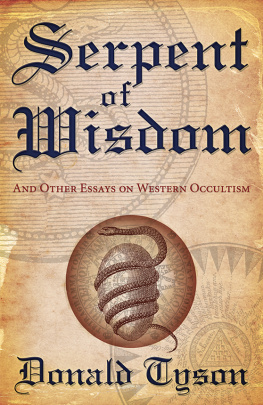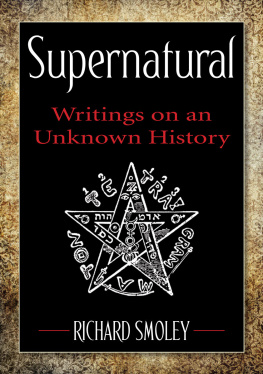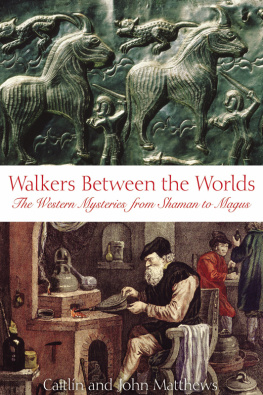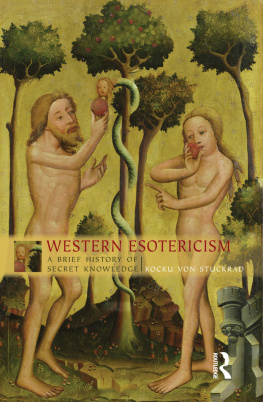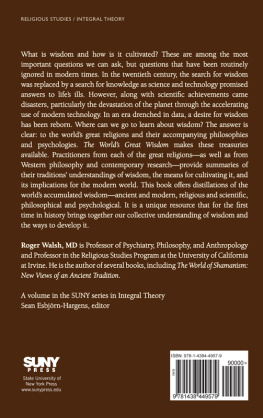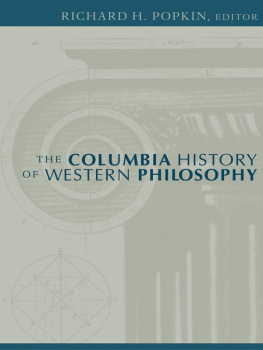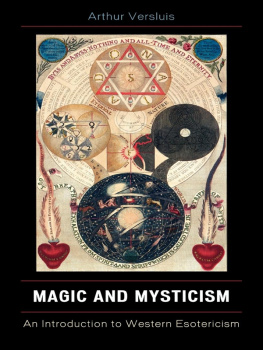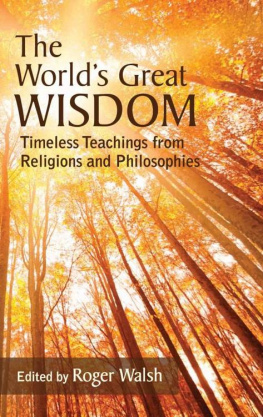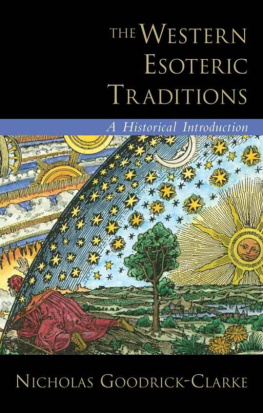Richard Smoley - Hidden Wisdom: A Guide to the Western Inner Traditions
Here you can read online Richard Smoley - Hidden Wisdom: A Guide to the Western Inner Traditions full text of the book (entire story) in english for free. Download pdf and epub, get meaning, cover and reviews about this ebook. year: 2012, publisher: Quest Books, genre: Religion. Description of the work, (preface) as well as reviews are available. Best literature library LitArk.com created for fans of good reading and offers a wide selection of genres:
Romance novel
Science fiction
Adventure
Detective
Science
History
Home and family
Prose
Art
Politics
Computer
Non-fiction
Religion
Business
Children
Humor
Choose a favorite category and find really read worthwhile books. Enjoy immersion in the world of imagination, feel the emotions of the characters or learn something new for yourself, make an fascinating discovery.
- Book:Hidden Wisdom: A Guide to the Western Inner Traditions
- Author:
- Publisher:Quest Books
- Genre:
- Year:2012
- Rating:5 / 5
- Favourites:Add to favourites
- Your mark:
- 100
- 1
- 2
- 3
- 4
- 5
Hidden Wisdom: A Guide to the Western Inner Traditions: summary, description and annotation
We offer to read an annotation, description, summary or preface (depends on what the author of the book "Hidden Wisdom: A Guide to the Western Inner Traditions" wrote himself). If you haven't found the necessary information about the book — write in the comments, we will try to find it.
Contemporary seekers on the hunt for an overview of the Western mystery traditions often face a small selection of dense, out-of-date tomes. Alternatively, Hidden Wisdom is a fresh, coherent, and accessible work that expounds many of the teachings of Western esotericism, examining its key figures and movements.
Hidden Wisdom: A Guide to the Western Inner Traditions — read online for free the complete book (whole text) full work
Below is the text of the book, divided by pages. System saving the place of the last page read, allows you to conveniently read the book "Hidden Wisdom: A Guide to the Western Inner Traditions" online for free, without having to search again every time where you left off. Put a bookmark, and you can go to the page where you finished reading at any time.
Font size:
Interval:
Bookmark:

R ICHARD S MOLEY was educated at Harvard and Oxford universities. From 1990 to 1999 he was editor of Gnosis: A Journal of the Western Inner Traditions. His other works include Inner Christianity: A Guide to the Esoteric Tradition; Forbidden Faith: The Gnostic Legacy from the Gospels to The Da Vinci Code; and The Essential Nostradamus. His Web site is www.innerchristianity.com.
J AY K INNEY is an editor and writer living in San Francisco. He was publisher and editor in chief of Gnosis from its inception in 1985 to 1999. His other works include The Inner West: An Introduction to the Hidden Wisdom of the West and The Masonic Enigma. His further writings can be found at www.jaykinney.com and www.gnosismagazine.com.
A Guide to the
Western Inner Traditions
Richard Smoley and Jay Kinney
REVISED EDITION

Learn more about Richard Smoley and Jay Kinney and their work at www.innerchristianity.com and www.jaykinney.com
Find more books like this at www.questbooks.net
Copyright 1999, 2006 by Richard Smoley and Jay Kinney
Revised Quest edition 2006
First edition published by Penguin/Arkana, 1999
Quest Books
Theosophical Publishing House
PO Box 270
Wheaton, IL 60187-0270
Without limiting the rights under copyright reserved above, no part of this publication may be reproduced, stored in or introduced into a retrieval system, or transmitted, in any form, or by any means (electronic, mechanical, photocopying, recording, or otherwise), without the prior written permission of the publisher of this book.
The scanning, uploading, and distribution of this book via the Internet or via any other means without the permission of the publisher is illegal and punishable by law. Please purchase only authorized electronic editions, and do not participate in or encourage electronic piracy of copyrighted materials.
While the author has made every effort to provide accurate telephone numbers and Internet addresses at the time of publication, neither the publisher nor the author assumes any responsibility for errors or for changes that occur after publication. Further, the publisher does not have any control over and does not assume any responsibility for author or third-party websites or their content.
Cover design, book design, and typesetting by Kirsten Hansen Pott
Cover image: Spring, copyright 2005 by Iren Schio, reproduced by permission of American Artists Series, www.AmericanArtistsSeries.com, Tel: 800-806-7206.
Library of Congress Cataloging-in-Publication Data
Smoley, Richard.
Hidden wisdom: a guide to the Western inner traditions / Richard Smoley and Jay Kinnery. Rev.ed.
p. cm.
Includes bibliographical references.
ISBN 978-0-8356-0844-2
1. Occultism I. Kinney, Jay. II. Title.
BF1411.S665 2006
| 135.4dc22 | 2006004236 |
ISBN for electronic edition, e-pub format: 978-0-8356-2044-4
5 4 3 2 * 10
It has long been debated whether religion has done more to further human progress or to hinder it. The great faiths of the world have guided and inspired millions, but they have also urged many on to hatred and bloodshed. Such are the evils religion can provoke, Lucretius wrote of human sacrifice in pagan antiquity, but almost all the worlds religions have criedand are still cryingfor throats to be slit in their honor. Such manifestations remain so common that by now it is clichd to denounce them.
This issue is more pressing now than it was nearly seven years ago, when this book was first published. The mid-twentieth century envisioned our age as a clinically sanitary era when people would zip off to work in personal spaceships and have robots catering to their every whim. Instead we are vexed with disputes about sacred sites and holy books, and each day the cultural wars in the United States seem more and more a struggle between the rival sects of fundamentalism and secularism.
Beyond all question we are living in a time of spiritual upheaval, but in what direction is this tumult moving? From one perspective, it looks as if conservative forms of religion are reasserting themselves, as we see in the ascendancy of the religious right in American politics and in the tremendous success of Mel Gibsons Passion of the Christ and the Left Behind novels.
Yet viewed from another angle, the public seems desperate to grasp at any evidence that casts doubt upon the institutional faiths. We see as much in The Da Vinci Code as well as in countless books and television programs that claim to reveal the truth about Mary Magdalene, the Gnostics, the Templars, and the Freemasonstruths that were allegedly suppressed by the religious authorities. If many of these claims range from the tenuous to the absurd, it is well to remember that scholarship has not been unwaveringly kind to the claims of mainstream religions either. Most New Testament scholars admit that the Gospels contain a heavy admixture of myth, and archaeologists have concluded much the same about the Hebrew scriptures. Summarizing recent findings in their 2001 book The Bible Unearthed, Israel Finkelstein and Neil Asher Silberman contend that the Exodus did not happen in any form that is recognizable from the archaeological record. The Israelites, for example, could not have escaped from the land of Egypt into Canaan, because Canaan was under Egyptian rule at the time of the supposed Exodus. For the eminence of David and Solomon, the evidence is just as scant. Archaeological findings from that era suggest that, in Finkelstein and Silbermans words, Jerusalem in the time of David and Solomon was perhaps not more than a typical hill country village. They go on to say that much of the description of Solomons glory was appropriated from the later splendors of the House of Omriall of whom, according to the Bible, did evil in the sight of the Lord.
What we are seeing in fundamentalism is, in short, a desperate clinging to old forms of belief when those forms are becoming more and more untenable each day.
In this situation, many look to science as a mainstay of rationality and objectivity. This view may be nave. Science has told us much about how the world works, but little or nothing about why. It has proved unable to address questions of ultimate meaning or purpose. For that matter, science has yet to offer a complete and coherent picture of the material universe. The search for the grand unification theory in physics remains as inconclusive as the quest for consciousness has proved in neurology. Yet scientists on the public platform often sound as if they know that the universe is a mere mechanism of blind actions and reactions when in fact they know no such thing. By talking as if it has settled questions of ultimate meaning when it has not, scienceor rather, scientism, which is science festooned in the robes of religionoften appears as dishonest and reactionary as fundamentalism.
The discomfort these tensions are causing in Western civilization grows more acute each day. At this point we may feel fairly sure that their resolution is not going to come from either science or religion as conventionally understood. The answer will have to come from elsewhere.
Here is where the subject of this book comes in. The Western esoteric tradition has long undergirded our civilization. In archaic Greece, it informed the beginnings of philosophy and science. A century or two later, by couching this tradition in the language of the nascent discipline of philosophy, Plato embedded it in the Western canon. Those who were influenced by him in turn, ranging from the Gnostics to the Neoplatonists to the early church fathers, interwove this tradition into Judaism and Christianity. Later forms of the esoteric doctrine, including the Kabbalah, alchemy, Rosicrucianism, and Freemasonry, helped shape the modern world as we know it, as we shall see. But as the modern world took form, it turned its back on the wisdom that had given it life.
Next pageFont size:
Interval:
Bookmark:
Similar books «Hidden Wisdom: A Guide to the Western Inner Traditions»
Look at similar books to Hidden Wisdom: A Guide to the Western Inner Traditions. We have selected literature similar in name and meaning in the hope of providing readers with more options to find new, interesting, not yet read works.
Discussion, reviews of the book Hidden Wisdom: A Guide to the Western Inner Traditions and just readers' own opinions. Leave your comments, write what you think about the work, its meaning or the main characters. Specify what exactly you liked and what you didn't like, and why you think so.

